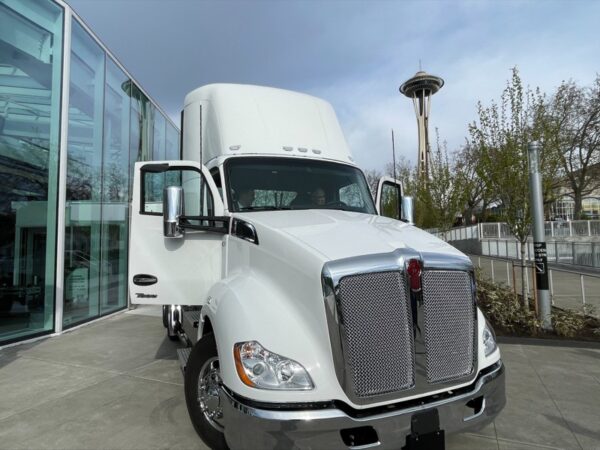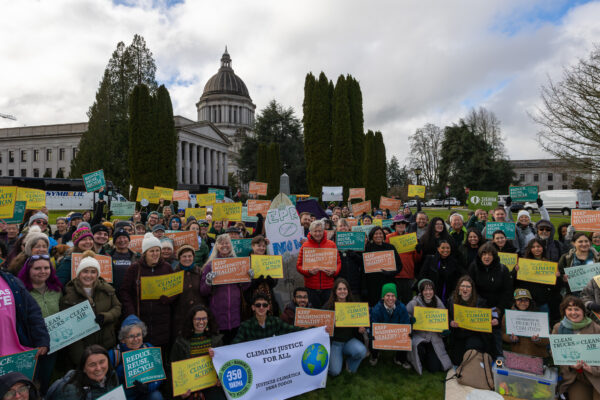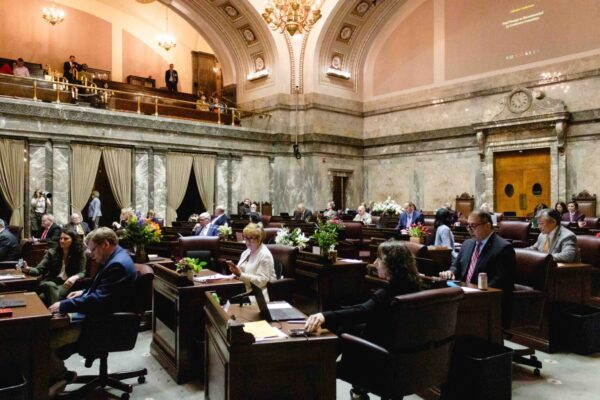“Today marks a step forward for Washington,” said Jessica Finn Coven, Washington State Director for Climate Solutions. “We look forward to working with Governor Inslee, business and legislative leaders to turn the promise of this law into a reality that helps move our state toward a clean energy future.”
The Climate Action law passed both the House and Senate with bipartisan support. It commissions an independent evaluation of the climate pollution reduction programs of other states and Canadian provinces, and of opportunities for new job-producing investments in Washington relating to cleaner energy and greater energy efficiency. It convenes the Governor and legislative leaders to develop policies to ensure we achieve our climate pollution limits for 2020 and beyond (set in statute in 2008 by Environmental Priority legislation).
“Governor Inslee has had a clear vision for our state – climate action and clean energy investment – since day one,” said Brendon Cechovic, Executive Director of Washington Conservation Voters. “That we stand here today is a testament to his work.”
“This law is an important first step towards reducing climate pollution in Washington,” said Joan Crooks, Executive Director of Washington Environmental Council and co-chair of the Environmental Priorities Coalition. “As we work together on large-scale solutions, there are other smart steps we can take now, like passing a strong equipment efficiency bill and closing the Big Oil Tax Loophole.”
The Governor’s Climate Action bill is part of the environmental community’s Clean Energy Solutions Priority, which also includes improving equipment efficiency (SHB 1017), a measure that would save Washingtonians $60 million a year by 2018, and closing the Big Oil tax loophole, a step that would end an accidental $41 million giveaway to oil companies.



